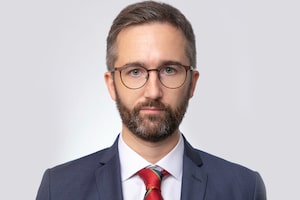Supreme Court judges wearing wigs attend a ceremony to mark the beginning of the new legal year in Hong Kong on Jan. 14, 2002.Reuters Photographer/Reuters
Former Canadian chief justice Beverley McLachlin says she will remain a judge on Hong Kong’s highest court despite the resignation of two British judges who cited the deterioration of freedoms since Beijing imposed a national-security law on the city.
Robert Reed, the president of the U.K. Supreme Court, and deputy president Patrick Hodge resigned Wednesday from Hong Kong’s Court of Final Appeal out of concern they were lending legitimacy to Hong Kong’s administration.
As freedoms in Hong Kong have been curtailed in recent years, particularly in the wake of the security law and a concerted crackdown on the pro-democracy opposition that followed, critics have argued that the presence of foreign judges on the CFA provides a veneer of international approval to an increasingly oppressive system.
Ms. McLachlin, the Supreme Court of Canada’s longest-serving chief justice, said the court remains an important institution in Hong Kong.
“The court is operating as an independent, judicial branch of government – perhaps the last surviving strong institution of democracy,” Ms. McLachlin said in a phone interview. “And it’s there for people to give them fair hearings and independent justice from the courts.”
Lord Reed said in a written statement that “courts in Hong Kong continue to be internationally respected for their commitment to the rule of law.” But since the introduction of the security law, the position of British judges had become “increasingly finely balanced.”
“I have concluded, in agreement with the government, that the judges of the Supreme Court cannot continue to sit in Hong Kong without appearing to endorse an administration which has departed from values of political freedom, and freedom of expression, to which the justices of the Supreme Court are deeply committed,” Lord Reed said.
Foreign judges from countries such as Britain, Australia and New Zealand have continued to sit on the city’s Court of Final Appeal, their presence seen by many as a guarantor and symbol of Hong Kong’s judicial independence after its handover to China in 1997.
While some judges, including Ms. McLachlin, serve in a private role, the leader and deputy leader of the U.K.’s Supreme Court have traditionally also held positions in Hong Kong as part of their duties.
Ms. McLachlin said she has not been contacted by the Canadian government or by her successor, Supreme Court Chief Justice Richard Wagner. She said she did not wish to comment on Lord Reed’s statement, which she had not been aware of when The Globe and Mail contacted her.
But on the issue of lending legitimacy to the administration, she said, “I deny that categorically.” She said the court has “no connection with the regime at all,” adding that its chief justice has assured her the court will remain independent. “I try to make these decisions in a principled way and I think the people of Hong Kong are entitled to an independent final court of appeal. They are fortunate so far to have that independent court of appeal.”
Ms. McLachlin chose last year to extend her stint until 2024, but she has faced pressure in Canada to quit the court. In January, Michael Chong, a Conservative MP and shadow foreign affairs minister, said Ottawa should be holding public consultations about whether it is appropriate for Canadian judges to serve in Hong Kong.
British Consul-General Brian Davidson said Wednesday that British judges “have played a key role in supporting the independence of the judiciary for many years in Hong Kong. … But following the introduction of the national security law, established rights and freedoms are now sadly deteriorating.”
Lord Reed’s statement was published minutes before British lawmakers were to address the matter in Parliament. Conservative MP Iain Duncan Smith said the announcement “confirmed what we have long known to be true: the presence of British judges in Hong Kong courts can no longer be justified in the face of Beijing’s rampant repression in the city.”
Like Ms. McLachlin, Australian judge Robert French also said he would stay on.
“I believe that the Chief Justice and resident judges of the Court of Final Appeal are committed to maintaining the independence of the judiciary,” he told the Sydney Morning Herald.
Andrew Cheung, Hong Kong’s Chief Justice, said he regretted the decision and thanked the judges for their service.
Hong Kong Law Society president Chan Chak-ming urged Lords Reed and Hodge to reconsider, saying there was general support in the legal community for foreign judges on the court.
Hong Kong officials have previously used the presence of foreign judges to push back against international criticism. Last year, Chief Executive Carrie Lam said “the willingness of these distinguished judges to participate in the work of the Hong Kong courts is the best evidence of Hong Kong’s judicial independence.”
Our Morning Update and Evening Update newsletters are written by Globe editors, giving you a concise summary of the day’s most important headlines. Sign up today.
 Sean Fine
Sean Fine James Griffiths
James Griffiths